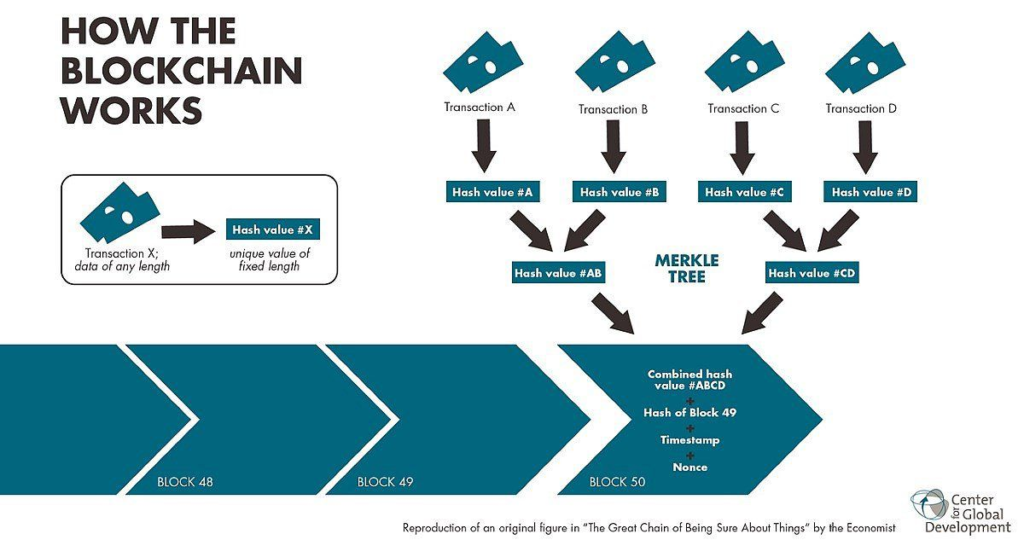Have you ever noticed how Big Tech companies like Facebook, Microsoft, Amazon, Apple, and Google seem to know everything about you? They’ve monopolized user data for years, making massive profits from it. But now, blockchain and crypto are shaking things up!
It all started in 2015 when financial experts at the WEF began to focus on the challenges posed by the rise of Bitcoin, digits, and fiital assntech. They realized that new technologies were disrupting the entire financial sector, from savings to trading, to cross-border and peer-to-peer transactions.
Then, in the summer of 2020, the DeFi renaissance arrived. This new concept, which had been growing for a few years, brought the machine economy to the forefront. Suddenly, everyone was talking about who should own the world’s greatest commodity: data.
Exciting stuff, right? So, In this blog, we’ll discuss how these innovative technologies can disrupting the monopoly of Big Tech over user data.
Also Read: The Rise Of Web3 And Blockchain Technology In Web Design
What Is a Blockchain?
Blockchain is a kind of database that lots of computers in a network share. It’s famous for being a crucial part of cryptocurrency systems because it helps to keep a record of transactions that’s secure and decentralized. But, it can be used for other things too! Blockchains can make data in any industry safe from being changed. This is called “immutable.”

Because you can’t change a block, the only time you have to trust someone is when they enter data into the system. This means you don’t always need to use people like auditors to check things, which can add extra costs and sometimes make mistakes.
Since Bitcoin started in 2009, people have used blockchain for lots of other things too! People have created different types of cryptocurrencies, decentralized finance apps, non-fungible tokens (NFTs), and smart contracts.
How it Works?
If you know about spreadsheets or databases, you can get the idea of a blockchain. It’s like a database where you can put and save information. But the way a blockchain structures and accesses data is quite different from the traditional databases.
In a blockchain, there are programs called scripts that work like a database where you can store and access information. The difference is that a blockchain is distributed, which means many copies of it are saved on various machines, and all the copies must match for it to be considered valid.

When a transaction occurs, the blockchain collects the information and puts it into a block, like a cell in a spreadsheet. Once the block is full, the information is encrypted through an algorithm, which produces a unique number called the hash.
This hash is then added to the following block header and encrypted with the other information in the block, forming a chain of blocks. That’s how a blockchain works!
How Blockchain will disrupt the big tech’s monopoly?
Blockchain technology has the potential to challenge big tech’s hold on user data. The decentralized apps built on the blockchain can remove the necessity for third-party tech companies to store and analyze data. This is already happening as people have become aware of how much money tech giants make from their personal data.
Decentralized apps are challenging big tech’s monopoly

Third-party platforms like YouTube and Facebook are still incredibly popular and influential, but the decentralized apps based on blockchain are also starting to show their capabilities. Blockchain is made up of two primary components:
1. A Decentralized network facilitating and verifying transactions
2. The immutable ledger that the network maintains
With blockchain, people can possess unique and immutable identities, which means they can capture their own data and monetize it while protecting their privacy.
For example, competing with YouTube still poses many challenges, but those trying to disrupt it have one major advantage: the creators create the platform and value.
Creators’ ability to earn from YouTube advertising is limited, and the competition is fierce. So it would make sense for at least some of them to move to new blockchain-based video platforms where there would be less competition and thus they would get more attention.
Blockchain can solve the problem of misaligned incentives
Google dominates global searches with a 77% market share, mainly helped by the network effects of big data. For a long time, worries regarding the role played by tech giants, especially as it relates to selling users’ personal data, found no solution. Now, it is clear that a blockchain-based browser/search engine could solve the problem of misaligned incentives. Such a search engine could use data and user preferences without ever owning them, to display better search results.
Users would benefit from advertising too. They would earn tokenized fees in exchange for seeing the ads. Thus, removing the unbalanced relationship that exists today between consumers and tech giants. More and more of our daily activities are now carried out digitally. There is no better example than e-commerce, which is grabbing a larger and larger piece of the traditional retail.
Blockchain can enable sellers to overcome their fear of losing customers
The problem here is also centralization.
For example,
Amazon, the most monopolistic and well-positioned marketplace in the Western world, is expanding by two digits from one year to another, thus strengthening its position as a costly intermediary between sellers and buyers. Blockchain can enable sellers to overcome their constant fear of losing access to customers. It is the key to creating decentralized marketplaces through which sellers can control their company’s destiny. Tokenized discounts or bonuses could be used to lure buyers to the platform. Therefore, blockchain becomes more and more relevant in the ecommerce world and could mean a better future for both businesses and individuals.
Are big techs afraid of blockchain’s potential?
In the last two decades, there was no single revolutionary technology that emerged without being enthusiastically adopted by big techs — from cloud, to augmented reality and artificial intelligence. However, they didn’t seem too interested in investing in blockchain so far. Could this be a sign that they are afraid of its potential to disrupt their business models? We will find out soon as we see a glittering future for blockchain.
The Response from Brands and Marketers and the Potential Solution
Brands and marketers are finding it tough to get user data because third-party data is harder to come by. So, they’re creating their own databases by collecting zero-party data (data consciously volunteered by the user) and first-party data. This includes everything from basic info to store visits, product preferences, and more. According to Wall Street Journal columnist Suzanne Vranica, this has become a top priority for businesses.
Brands are using various methods to get this data, like loyalty and rewards programs, competitions, email and text newsletters, quizzes, and QR codes. But creating and managing these databases can be expensive, especially for smaller businesses.
So, what can businesses do to overcome the challenges posed by Big Tech companies that control user data? The answer is clear: continue to collect zero-party and first-party data. By building relationships with customers, businesses can gain their trust and foster brand loyalty. This is important because many people distrust Big Tech companies that seem to see them as nothing more than data.

To show customers they’re valued, brands can use opt-in value exchange methods like loyalty programs and permission marketing. These strategies are likely to become more popular as we move towards Web 3.0. Although Big Tech companies present a major challenge, brands that provide value to their customers in exchange for their consent to share data are likely to be successful in the long run.
Conclusion
In summary, Blockchain technology is shaking up the way big tech companies hold onto user data. This new technology has the potential to change the current status quo and put more control in the hands of individuals.
However, there are still some hurdles that need to be addressed, such as scaling and user adoption. Nonetheless, it is worthwhile exploring the possibilities of blockchain in creating a more user-focused approach to data management. As blockchain technology continues to mature and improve, we may see a shift towards a future where individuals have more say in managing their digital identities.
Editor’s Choice:
A Decade Of Digital Disruption: The Evolution Of Marketing In The Digital Age & Future Trends
The L.O.V.E. 4-Step Email Copywriting Framework: Connections, Trust & Conversion
Why T-Shaped Marketers Hold The Key To Success In The New Marketing Age






